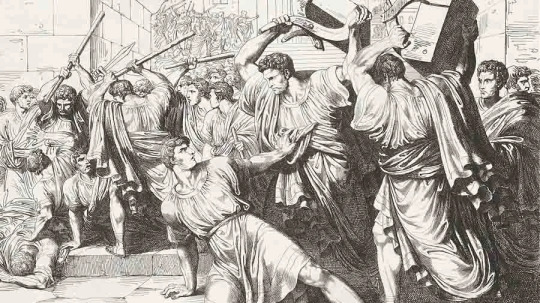#Gracchus Babeuf
Explore tagged Tumblr posts
Text

Original picture
#french revolution#frev#frev memes#almost half of these people are not even from pas-de-calais#but still#so... let's start the list#gracchus babeuf#philippe le bas#philippe lebas#joseph le bon#joseph lebon#camille desmoulins#desmoulins#antoine quentin fouquier-tinville#fouquier-tinville#martial herman#augustin robespierre#charlotte robespierre#maximilien robespierre#robespierre#louis antoine saint just#saint just#saint-just
29 notes
·
View notes
Text
"The organization of real equality, the only one that responds to all needs, without causing any victims, without costing any sacrifice, will not at first please everyone. The selfish, the ambitious, will tremble with rage. Those who possess unjustly will cry out about injustice. The loss of the enjoyments of the few, of solitary pleasures, of personal ease will cause lively regret to those heedless of the pain of others. The lovers of absolute power, the henchmen of arbitrary authority, will with difficulty bow their superb heads before the level of real equality. Their shortsightedness will penetrate with difficulty the imminent future of common happiness; but what can a few thousand malcontents do against a mass of happy people"
-Gracchus Babeuf, French Revolutionary and member of the "Conspiracy of Equals", executed 27 May 1797 by the French Directory after a failed revolt.

33 notes
·
View notes
Text
Η σοσιαλιστική πτέρυγα της Γαλλικής Επανάστασης του Θόδωρου Σταυρόπουλου (theseis.com)
Τεύχος 30, περίοδος: Ιανουάριος – Μάρτιος 1990 Η σοσιαλιστική πτέρυγα της Γαλλικής Επανάστασηςτου Θόδωρου Σταυρόπουλου Εισαγωγή Η Γαλλική Επανάσταση συνιστά το κεφαλαιώδες γεγονός εκπόρευσης της σημερινής ευρωπαϊκής κοινωνίας. Από μία γενική άποψη μέσα στη μήτρα της Γαλλικής Επανάστασης επωάσθηκαν οι ιδεολογικές και πολιτικές προϋποθέσεις της σημερινής βιομηχανικής κοινωνίας. Εξ’ άλλου η…

View On WordPress
#François-Noël Babeuf#French Revolution#Gracchus Babeuf#Γράκχος Μπαμπέφ#Γαλλική Επανάσταση#socialism
2 notes
·
View notes
Text
you think the french can’t surprise you until you have an exam on gracchus babeuf
1 note
·
View note
Text
Gracchus Babeuf and the communist idea (links.org.au)
[Gracchus Babeuf and the communist idea](https://links.org.au/day-people-gracchus-babeuf-and-communist-idea)

View On WordPress
0 notes
Text
Gracchus Babeuf's opinion on the storming of the Bastille and the murder of Foulon. Letter he sent to his wife:

"Mr. Foulon was arrested yesterday, taken to the City Hall, and hanged as he was descending from it. His body was dragged through the streets of Paris, then torn into pieces, and his head, carried on the end of a pike, was taken to the Faubourg Saint-Martin. […] I saw this head pass by in the midst of two hundred thousand spectators who were celebrating along with the escorting troops. Oh! How this joy pained me! I was at once satisfied and dissatisfied, I said ‘good’ and ‘bad’ at the same time. I understand that the people take justice into their own hands, I approve of this justice when it is satisfied by the annihilation of the guilty, but could it today not be cruel? The tortures of all kinds, the breaking on the wheel, the torture, the pyres, the whip, the gallows, the executioners multiplied everywhere, have given us such bad morals! The masters, instead of civilizing us, have made us barbarous because they themselves are. They will reap and will continue to reap what they have sown, for all this, my poor wife, will, it seems, have terrible consequences: we are only at the beginning."
Here we see from the outset that Gracchus, although an "ultra-revolutionary" on the issue of property rights (where even some members of the faction of the Enragés and the Exagérés hesitated to question the right to property, except for people like Momoro or Jacques Roux), advocates for clemency (which proves that being a moderate does not mean being lenient; the example with the moderate assembly in the conservative sense of revolutionary ideals and what happened during the Insurrection of 1st Prairial Year III) . But Gracchus is absolutely right in his reasoning, which proves that he is not the simpleton that Stefan Zweig tries to depict, but a man of great intelligence and a true humanist (I exaggerate deliberately, but he is one of those who truly fought against the double standard of morality while being a fervent revolutionary) when he does not put the names of the Babouvists involved with him in the conspiracy on a list and does not allow it to be left lying around in his room, according to Pierre Serna. This also shows that Gracchus considered his wife (Marie-Anne Victoire Babeuf)to be a trustworthy political figure. In fact, there are other letters (and she was, in a sense, Gracchus' right hand, not to mention the arrests or detentions she herself suffered under the Directory or Bonaparte).
7 notes
·
View notes
Text

maximilien robespierre (6 may 1758-6 may 2024) and the ways he's been described. sources for each quotation under the cut.
disclaimer: I don't agree with everything quoted here, and some of them are truly incomprehensibly batshit (looking at you, betty from finance). primary sources are in bold. no discernable order.
wikipedia introduction louis-marie stanislas freron ARBR petition bertrand barere several deputies defended by robespierre germaine de stael mary duclaux peter mcphee georges lefebvre alexandre dubois-crance lazare carnot jonathan israel vladimir lenin alphonse aulard marc bloch citizen garnier (prenom unknown) pierre-joseph cambon manon roland honore mirabeau jeremy popkin sieclesetcieux on tumblr gracchus babeuf ruth scurr marie-helene huet
#pigeon.img#french revolution#frev#frev art#frevblr#robespierre#maximilien robespierre#etre supreme this took so fucking long#anyways happy bday robespierre#(pls come back we could do with some decent politicians again ty)
133 notes
·
View notes
Text

Unknown Artist French Revolutionary, Editor of the Radical Newspapers "Journal de la Liberté de la Presse ("Journal of the Freedom of the Press") and Le Tribun du Peuple (The Tribune of the People) and Leader of the "Conjuration des Égaux" (Conspiracy of Equals), Which Sought to Overthrow the Right Wing Government That Had Overthrown the Jacobins and to Institute a New, Proto-Socialist Society, François-Noël "Gracchus" Babeuf c.1793
"La prétendue supériorité de l'homme sur la femme et la despotique autorité qu'il s'arroge sur elle ont la même origine que la domination de la noblesse." (The pretended superiority of man over woman, and the despotic authority which he arrogates over her, have the same origin as the domination of the nobility).
"C'est la grande propriété qui a inventé et soutient le trafic des blancs et des noirs qui vend et achète les hommes… C'est elle qui dans les colonies donne aux nègres de nos plantations plus de coup de fouet que de morceau de pain." (It is the system of great landed estates which invented and sustains the trafficking of whites and blacks who sell and buy men. … It is this system which in the colonies gives the blacks of our plantations only a blow with a whip and a morsel of bread).
"L'éducation est une monstruosité lorsqu'elle est inégale, lorsqu'elle est le patrimoine exclusif d'une portion de l'association; puisqu'alors elle devient la main de cette portion, un amas de machines, une provisions d'armes de toutes sortes, à l'aide desquelles cette première portion combat l'autre qui est désarmé." (Education is a monstrosity when it is unequal, when it is the exclusive patrimony of one class of the society; because it then becomes the controlling hand of this class, a mass of mechanisms, a provision of weapons of all kinds, with the aid of which the ruling class combats the other, which is disarmed).
"Il faut avancer… parce que le christianisme et la liberté sont incompatibles" (We must advance … because Christianity and freedom are incompatible."
-- François-Noël "Gracchus" Babeuf
18 notes
·
View notes
Note
Citizen Lazare Carnot,
I imagine you will quickly recognize me upon reading this message. Let’s just say that the last time our paths crossed, I did not criticize you too much, even though you played a role in my demise. However, I acknowledge that you saved some of my friends (even if you condemned others), which I cannot deny. In comparison, you showed far more integrity than that scoundrel Barras. Whether he was innocent or guilty in this matter does not concern me: he committed far more reprehensible acts than you. My resentment, however, is much greater toward Grisel and Minister Cochon, whose actions precipitated my death and that of my companions.
Moreover, you never pretended to be my ally, nor tried to make it seem as though you were on my side, unlike that cursed Fouché. And after my death, you never targeted my wife or my son, unlike that traitor. But no matter, I am not here to dwell on the past.
Don’t you find that my son Émile has beautiful handwriting, as demonstrated in the letter he sent you during the Hundred Days? I must admit that I am proud of him: I always took great care of his education, even from prison. Moreover, he is an excellent violinist. As someone who appreciates music, feel free to tell me what you think of him if you ever meet him.
I have also heard of the treacherous schemes of that villain Fouché. Do not hesitate to stand up to him, as I did when I discovered his true nature. Although we never sympathized, were indeed enemies, and profoundly disagreed on politics, I know that you are far more reliable and devoted to the Republic than he is. Use all means at your disposal to put that traitor in his place. You are capable of it, even if the task seems daunting. Do not give up.
Despite everything that has happened between us, I wish you a good collaboration with my son Émile. Please also convey my regards to Félix Le Peletier, my old friend, despite the complicated relationship between you two.
P.S.: However, I still cannot understand what you and Émile see in Bonaparte. It baffles me.
Gracchus Babeuf, Journalist of Le Tribun du peuple
However, I still cannot understand what you and Émile see in Bonaparte. It baffles me.
What would you choose between the Bourbons and Bonaparte? The answer is quite obvious.
I personally don't know what other reasons might have led Émile to side with him other than a pure dislike for the old monarchy; a feeling shared by many, including myself. I must admit that, despite the path that Bonaparte eventually took, I still have a soft spot for him - the man and the soldier, of course; not the politician.
I have never met your son in person, but his letter left such a positive impression on me that I couldn't not ignore such a devoted patriot: thatcs why I tasked him with a mission he accepted.
I have no idea what his feelings towards me might have been... If they are of despise I won't blame him: I was responsible in destroying his family, after all.
As for you, Babeuf, I'm quite surprised by your attitude right now. Frankly, I've never had it personally with you, in spite of the nonsense Barras wrote in his mémoirs. I see a threat in any kind of extremism; you and your faction happened to embody one.
I blame myself to have been too blind to see the rise of another extremism of which I was wrongly painted as a supporter.
2 notes
·
View notes
Text
If you ask ChatGPT for the business secrets of Gracchus Babeuf it speaks positively of the things he worked towards but if you ask for the business secrets of Charles I it speaks of him in terms of his failures, his business secrets are all negative., things to avoid I think that this proves that chatGPT is woke.
7 notes
·
View notes
Text
Gracchus Babeuf and the communist idea (links.org.au)
[Gracchus Babeuf and the communist idea](https://links.org.au/day-people-gracchus-babeuf-and-communist-idea)

View On WordPress
1 note
·
View note
Text

I suspect people miss my header image and assume its a Greek temple. If you look at the pillars for a second though, you'll see that it's very modern looking, even surreal. It is, in fact, a Serbian monument called "The Mausoleum of Struggle and Victory" from the socialist era. The aesthetic combines Modernism and Neo-Classicism. The photo itself is by Yang Xiao, as part of a series combining artificial lights with decaying socialist-era monuments at night, called "Eternal Monuments in the Dark."

By framing socialist bloc architecture as classical ruins, and placing the democratic revolutions of Greece along side modern socialist revolutions, I'm making a point about historical narratives and associations. Ancient Mediterraneans didn't associate themselves with Northern Europeans, and to this day people are shocked by how "Eastern" Greek culture is. In many ways Islamic culture is more Roman than Western Culture. The Fascist fantasy of the past is just that: a fantasy. A tool they use for their political goals. They homogenize the diversity of Rome, they whitewash Greek statues, and they impose modern Classical music on cultures that wouldn't recognize it.
youtube
Liberals talk about how Ancient Greece is the foundation of Western Civilization™️, but they have no greater claim to it than Muslims or Buddhists. (The Greeks got around.) There is nothing in bourgeois political forms that's reminiscent of Athens, except perhaps for their hypocrisy towards their slaves. Many of the things the peasants and proletarians of Greece and Rome fought for were actively despised by Hamilton, Jefferson, and that whole lot of grifters. They hated universal male suffrage, they hated mass assemblies, they hated ballot measures, they hated rotation and sortition, and they hated land reform and debt abolition. They didn't love "the ancients," they loved their aristocrats.

Socialists have long loved the defeated reformers and revolutionaries of the ancient past. The first modern communist called himself "Gracchus Babeuf." What I'm doing isn't special. The point is to take the things the bourgeois order claims it's built on, and show how fake it all is.

One day, the role the Classical Mediterranean plays in the modern superstructure will be replaced by the Socialist Bloc: a defeated experiment whose ruins global Communism will rest on. Their monuments, now covered in graffiti, will one day be visited by tourists the way the Parthenon is, to marvel at their glorious ambitions.
#socialism#communism#Marxism#history#Ancient Greece#Ancient Rome#architecture#historiography#Youtube#Soviet Union#Serbia
10 notes
·
View notes
Text
Η σοσιαλιστική πτέρυγα της Γαλλικής Επανάστασης του Θόδωρου Σταυρόπουλου (theseis.com)
Τεύχος 30, περίοδος: Ιανουάριος – Μάρτιος 1990 Η σοσιαλιστική πτέρυγα της Γαλλικής Επανάστασηςτου Θόδωρου Σταυρόπουλου Εισαγωγή Η Γαλλική Επανάσταση συνιστά το κεφαλαιώδες γεγονός εκπόρευσης της σημερινής ευρωπαϊκής κοινωνίας. Από μία γενική άποψη μέσα στη μήτρα της Γαλλικής Επανάστασης επωάσθηκαν οι ιδεολογικές και πολιτικές προϋποθέσεις της σημερινής βιομηχανικής κοινωνίας. Εξ’ άλλου η…

View On WordPress
#François-Noël Babeuf#French Revolution#Gracchus Babeuf#Γράκχος Μπαμπέφ#Γαλλική Επανάσταση#socialism
0 notes
Text
‘LMAOOOO JD Vance fucked a couch and the right are coping har-‘
You bolt upright. The year is 1796. You are Gracchus Babeuf. You feel more conviction than ever. This future must not come to pass. The directory cannot be allowed to continue, and you cannot allow yourself to fail.
3 notes
·
View notes
Text
"To live is not to suffer, it is not to languish, it is not to barely vegetate and drag oneself along with great deprivation and misery from the cradle to the grave. To live is to freely traverse the circle of our existence, giving to all the periods it comprises what is suitable for our organization, both physically and morally." This is what Gracchus Babeuf wrote on the eve of his execution.
50 notes
·
View notes
Note
Link Gracchus Babeuf and Matthew Hopkins
Hopkins went around hunting witches with female assistants (clearly this means he supported women's rights like Babeuf did)
Hopkins used torture on suspected witches. Babeuf supported using torture on political opponents (we know this because he likes Robespierre, who used long boring speeches as a form of torture against deputies
3 notes
·
View notes